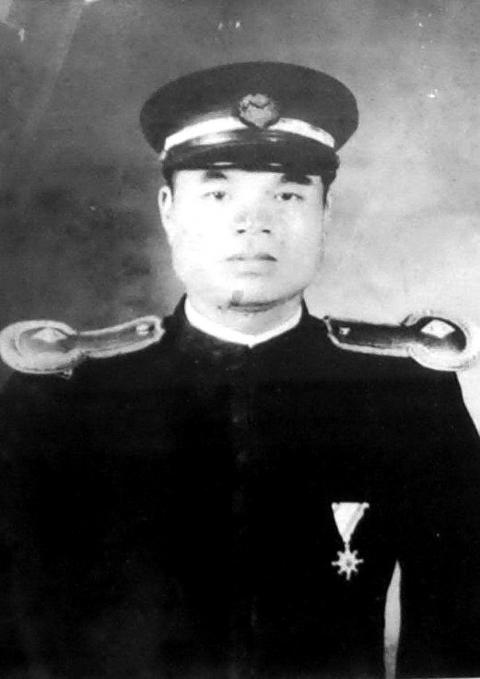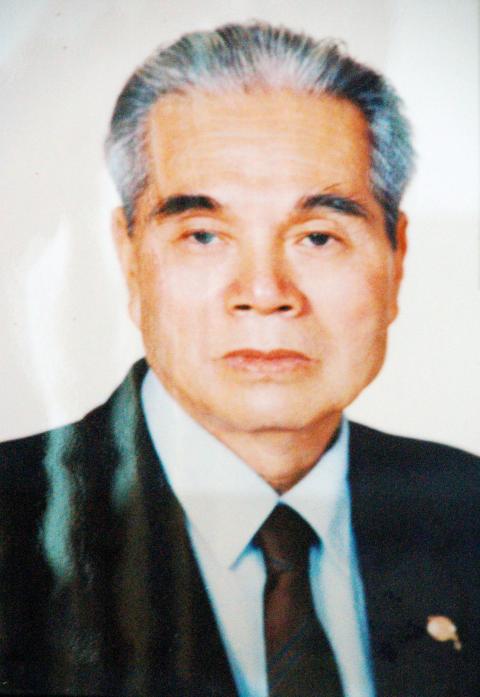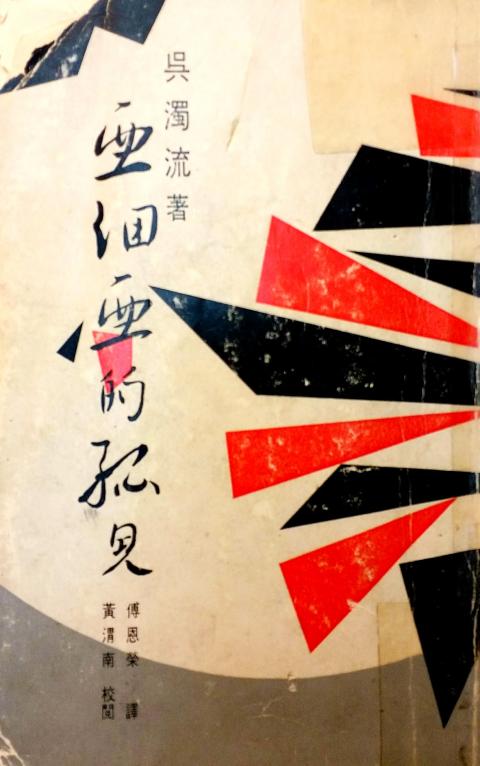Taiwan in Time: June 27 to July 2
Over the years, the term “Orphans of Asia” (亞細亞的孤兒) has been used to describe a number of things, including Taiwan’s political isolation and Chinese Nationalist Party (KMT) troops stranded in Thailand and Myanmar after they lost the civil war.
But originally, when Taiwanese author Wu Cho-liu (吳濁流) first used the term as the title of his debut novel, written in Japanese during World War II, it referred to Han Chinese living in Taiwan under Japanese rule because they neither truly belonged to Japan or China.

Photo: Tsai Meng-shang, Taipei Times
The novel follows Taiwanese intellectual Hu Tai-ming (胡太明), who, after leaving for China after being mistreated in Taiwan by the Japanese, found himself also the subject of discrimination by the Chinese, who distrusted him and saw him as a Japanese traitor.
“Hu is a victim of this twisted chapter of history,” Wu wrote in the introduction to the Chinese edition, adding that he wrote the book for both future Japanese and Taiwanese to remember that period.
It was quite a daring move for Wu to write the novel while Taiwan was still a colony of Japan, especially during war time when imperialist fervor was at a peak and absolute loyalty was required. He writes that he had to hide his manuscripts or disperse them in various places in the countryside because he would have been charged with treason if they would have been found.

Photo: Wang Chin-yi, Taipei Times
“Nobody would dare use that kind of historical backdrop in a novel in those days, much less depict the true reality of those times without any hesitation or restraint,” Wu wrote. “History often repeats itself. But before it repeats itself again, we need to look at the facts so we can learn our lessons.”
Wu details in the introduction the immediacy in finishing the novel as Japan neared defeat in 1945. The Americans had captured Manila by then, and there was much speculation among intellectuals on where they would land next, and how the Japanese would react in case they chose Taiwan.
“The fear in my heart was completely suppressed by my urgency to finish the novel,” he wrote. “The airstrikes were becoming more frequent, and you couldn’t predict when a mishap would happen. Thinking back, I’m glad I had that kind of drive. If I were to write it today, I would not be able to convey the same sense of reality.”

Photo: Han Cheung, Taipei Times
Born on June 28, 1900 and living to be 76 years old, Wu spent about half of his life under the Japanese and half under the KMT. His novels have often been studied due to their detailed descriptions of Taiwanese society during and after Japanese rule.
Wu was raised in a prominent Hakka family in the Hsinchu area, and received both a Chinese and Japanese education.
His life experiences closely mirror the ideas in Orphans of Asia. Wu worked as a teacher after college, but soon became monitored by police for his criticism of the education system and also because he read magazines published by Taiwanese students in Japan, such as Taiwan Youth (台灣青年), which often contained writing that authorities considered subversive.
Because of this, Wu was transferred to one of the most remote areas for teachers in the Hsinchu area. He describes this as a time where he had “no dreams and no ideals,” but it was also one of the happiest of his life.
Wu did not start writing stories until he was about 36 years old. In 1937, he left the countryside and started teaching at a larger school, where discrimination against Taiwanese staff was rampant and he was forced to rethink his position. The Japanese also invaded China around this time, and the authorities started their aggressive “Japanization” process of the Taiwanese people.
Finally, after a conflict with Japanese staff at the school, he quit his job and headed to China in 1941 — a place where many Han Chinese in Taiwan at the time saw as their motherland.
Wu landed in Nanjing, which was then ruled by the Japanese collaborationist government headed by Wang Jingwei (汪精衛). He did not speak Mandarin at first, and soon found that due to anti-Japanese sentiment in China, the people there often saw Taiwanese as Japanese spies.
“Taiwanese are like orphans who lost their parents,” he wrote in his autobiography, The Fig Tree (無花果). After seeing that the situation was no better in China, Wu returned to Taiwan and started working on Orphans of Asia.
After the Japanese left and the KMT took over, Wu was finally able to publish the novel, which was translated into Chinese in 1959.
But here is the irony of Wu’s literary career: The Fig Tree, published in 1970, was immediately banned by the KMT due to its description of the 228 Incident, and did not reappear until it was republished in 1988.
Taiwan in Time, a column about Taiwan’s history that is published every Sunday, spotlights important or interesting events around the nation that have anniversaries this week.

Taiwan has next to no political engagement in Myanmar, either with the ruling military junta nor the dozens of armed groups who’ve in the last five years taken over around two-thirds of the nation’s territory in a sprawling, patchwork civil war. But early last month, the leader of one relatively minor Burmese revolutionary faction, General Nerdah Bomya, who is also an alleged war criminal, made a low key visit to Taipei, where he met with a member of President William Lai’s (賴清德) staff, a retired Taiwanese military official and several academics. “I feel like Taiwan is a good example of

March 2 to March 8 Gunfire rang out along the shore of the frontline island of Lieyu (烈嶼) on a foggy afternoon on March 7, 1987. By the time it was over, about 20 unarmed Vietnamese refugees — men, women, elderly and children — were dead. They were hastily buried, followed by decades of silence. Months later, opposition politicians and journalists tried to uncover what had happened, but conflicting accounts only deepened the confusion. One version suggested that government troops had mistakenly killed their own operatives attempting to return home from Vietnam. The military maintained that the

Jacques Poissant’s suffering stopped the day he asked his daughter if it would be “cowardly to ask to be helped to die.” The retired Canadian insurance adviser was 93, and “was wasting away” after a long battle with prostate cancer. “He no longer had any zest for life,” Josee Poissant said. Last year her mother made the same choice at 96 when she realized she would not be getting out of hospital. She died surrounded by her children and their partners listening to the music she loved. “She was at peace. She sang until she went to sleep.” Josee Poissant remembers it as a beautiful

Before the last section of the round-the-island railway was electrified, one old blue train still chugged back and forth between Pingtung County’s Fangliao (枋寮) and Taitung (台東) stations once a day. It was so slow, was so hot (it had no air conditioning) and covered such a short distance, that the low fare still failed to attract many riders. This relic of the past was finally retired when the South Link Line was fully electrified on Dec. 23, 2020. A wave of nostalgia surrounded the termination of the Ordinary Train service, as these train carriages had been in use for decades